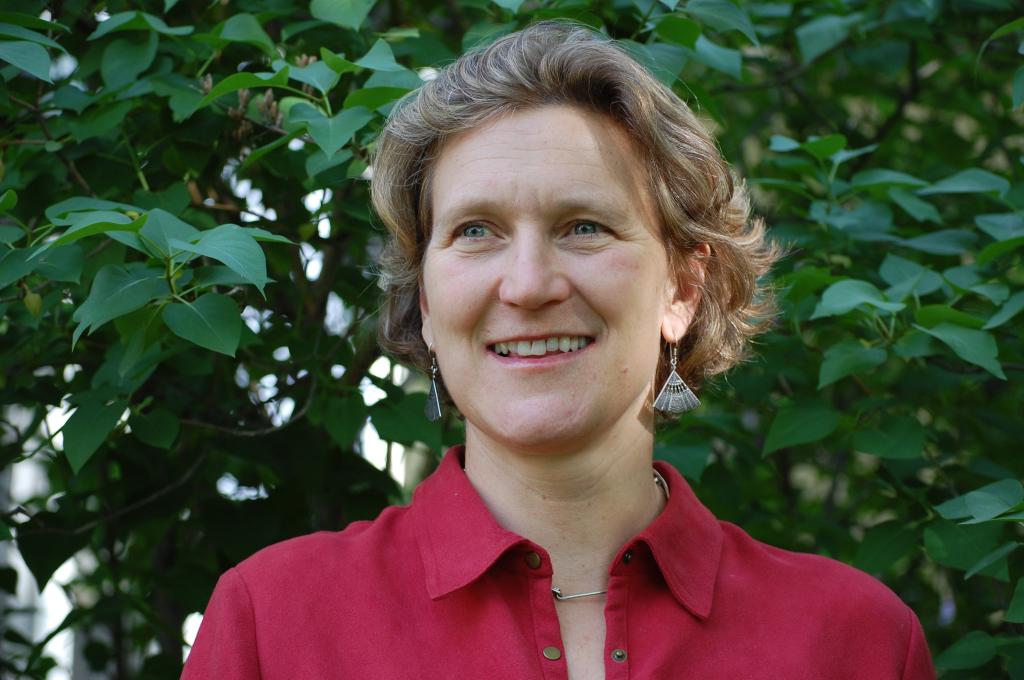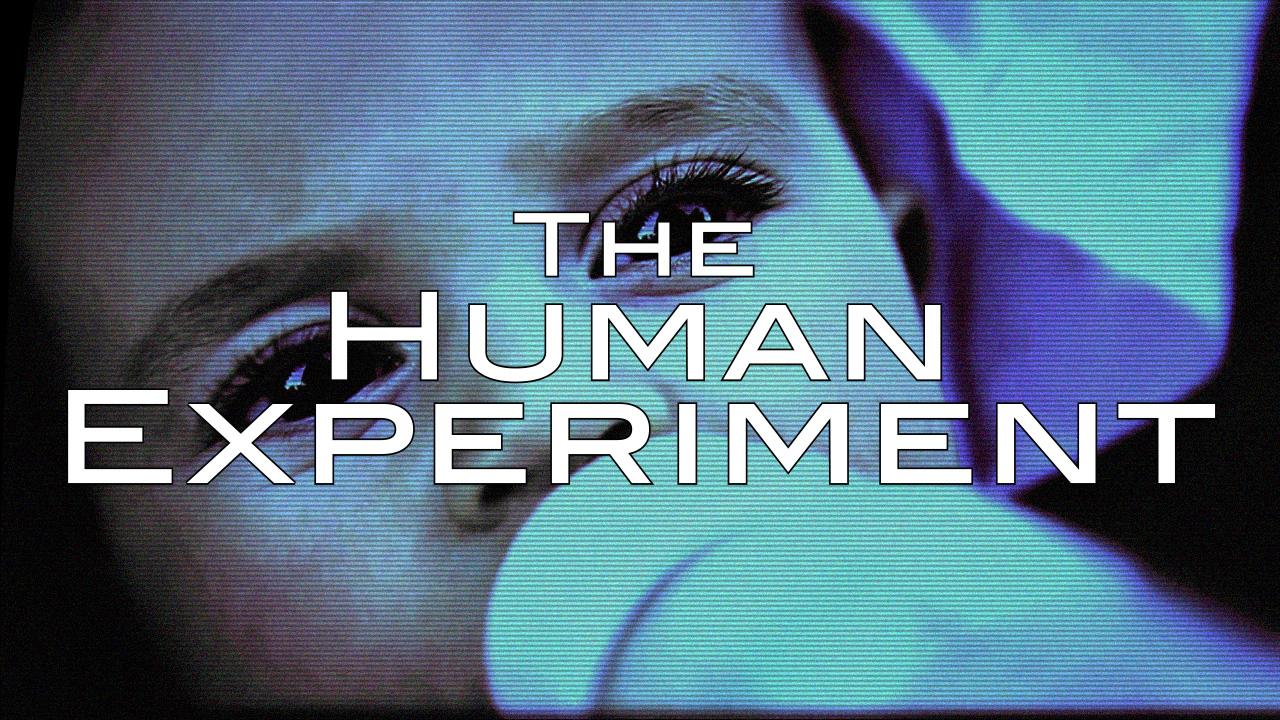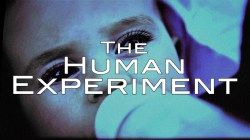
KTF Films
Dana Nachman was a producer at NBC when she wrote a story on how to make your home less toxic. “It was something I never gave an ounce of thought to before,” she says. In her research, she learned not only about the tens of thousands of chemicals lurking in everyday products, but that most of those chemicals have never been independently tested for their safety. Meanwhile, rates of tough-to-explain health problems like breast cancer, autism, and infertility — many of which have been linked to toxic exposure — are on the rise. A mother of young children, Nachman found this upsetting enough to turn it into the subject of her next documentary (her first two films tackled wrongful convictions and terrorism). The Human Experiment, narrated by Sean Penn and co-directed by Don Hardy, follows three families motivated by health problems to fight the powerful chemical industry lobby on behalf of everyone’s safety.
Nachman, Hardy, and producer Chelsea Matter plan to start submitting the film to festivals and looking for distribution next year. In the meantime, they’re working on developing an app to help consumers choose the safest products and minimize toxins in their homes.
Watch a trailer for The Human Experiment:
I caught up with Nachman during a break from editing the film to learn more about our toxic world and whether there’s anything we can do to change it.
Q. Was I naive to assume safety testing was part of the standard procedure to get a product on the market?
A. Most people assume that these things are vetted before they get put on the store shelves, and that’s absolutely not true. Why? The answer is pretty complicated, but there was a law established in 1976 called the Toxic Substances Control Act. It’s very outdated. We’re dealing today with tens of thousands of chemicals in everyday life, with the same laws we’ve had since before there were so many. [The TSCA generally excludes substances like food, drugs, cosmetics, and pesticides.]
Q. How did we come to live among so many chemicals?
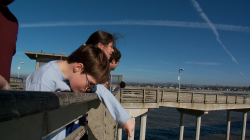
KTF FilmsThe film profiles Ben, who is severely autistic, and his sister Hannah.
A. A lot of these chemicals have been here for a long time. But they’re just ubiquitous now. There are 80,000 chemicals used in society today. [The more] modern conveniences that we use … the more chemicals we’re using. Back in the ’70s people knew about certain [substances] like DDT and PCBs, and they took action to limit those, among other things. But a lot of work on environmental health has only started in earnest since the beginning of the 1990s.
A main thing in our movie is that we shouldn’t wait until we have absolute proof that these things are bad for us to make some changes. For example, in the 1920s, the [cigarette] companies knew that tobacco causes cancer. Now it’s been 100 years, almost, and tobacco is still killing people.
Somebody just the other day asked me what I thought about BPA. I said I don’t know definitively; I do believe there are problems with BPA, enough so that I try to limit my children’s exposure to BPA as much as I possibly can. And if it turns out there’s nothing wrong with BPA, great. But companies making a lot of money off of our purchasing these things without having to do obligatory testing — that’s not OK with me.
Q. It can be hard to process information about all the dangerous chemicals we live with if you and your loved ones don’t seem to be affected by them. It can sound alarmist, or it can seem pointless to even try to protect yourself.
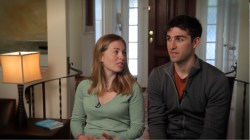
KTF FilmsJenn and Noah talk openly about their struggles with infertility.
A. It’s hard not to be alarmist. Infertility, breast cancer, autism — all these things are on the rise and no one knows why. Medicine is only getting better. We shouldn’t have to wait for such substantial proof to know that these things need to be regulated and tested.
Ninety-three percent of Americans have BPA in their blood [PDF]. We tested an umbilical cord on a baby for our movie, and that baby was already born with chemicals [in its body] before it even breathed air, drank water, or ate anything. So yeah, these are already in our bodies, but … it’s the accumulation over time that I worry about. I think we can minimize it.
I have three little kids, and I just have to think that they’re pretty new to this world, so they’ve only been exposed so much. I do think there’s thresholds of chemicals people can withstand, and if I can just keep them below that threshold, they’ll fare better in life.
Q. Tell me about the subjects you profile in the film.
A. We focus on a breast cancer survivor, a family that has an autistic son, and an infertile couple. None of them worked near a toxic dump site or anything like that; they didn’t have extraordinary exposures. But they also didn’t have these conditions in their family. There was no real reason why they should have gotten them.
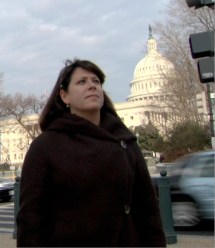
KTF FilmsMarika, a breast cancer survivor, takes on the chemical industry in Washington, D.C.
Marika, who is a breast cancer survivor, goes out and educates other breast cancer survivors. There’s this disturbing new stuff that’s come out about how BPA affects the efficacy of tamoxifen, which is a major breast cancer drug. She’s going out and telling other breast cancer survivors about that. And Jenn and Noah, our couple that we talk about infertility with, were really hard to find because we had to find someone who was willing to talk about such a taboo subject. They let us in for some of their treatments. She’s working at an organization in Michigan to help try to change policy. And Hannah — her brother’s autistic — she was working for the Autism Society. Part of their [mission] is trying to work on the chemicals issue in Washington. [The Autism Society partners with Safer Chemicals, Healthy Families to advocate for government regulation of chemicals.]
Q. What surprised you in making the film, and what do you think will surprise viewers?
A. It sounds naive, but I was shocked about how much the chemical industry is fighting tooth-and-nail against [regulation]. We focus on a flame retardant bill in California — just one state and one set of chemicals — and they put in $6 million to make sure it did not pass. Nobody from the chemical industry would speak to us for our film. I think that’s pretty telling.
Hannah says in the movie, she’s mad that she has to go out and lobby on an issue that’s going to protect all people. If we could have prevented the millions of deaths from tobacco, wouldn’t we have? To me that’s shocking that this still happens. It happened with lead, it happened with tobacco, it happened with asbestos, and it happens today.
Q. It’s the same with climate change. Why do you think we have this tendency to wait until the evidence is overwhelming before we do something?
A. There are studies funded by the chemical companies to cast doubt on everything we know. If we wonder if [reports on the dangers of chemicals are] really true or not, that’s not because we’re being skeptical, it’s because … [doubt] is very deliberately put in the media. You want to not worry about it, so you want to be like, “Oh, but that study said it was fine.”
Q. What do you personally do to minimize your family’s exposure to chemicals?
A. I stopped buying a lot of stuff. My kids are little — they don’t need body lotion; they don’t need a lot of product. I buy shampoo and conditioner that are natural. I put sunscreen [on my kids] when I know they’re going to get sunburned; I don’t put it on every day, all the time.
I open the windows in my home a lot. Indoor air quality is way worse than outdoor air quality because of all the chemicals in our furniture, our carpets, our cleaning materials, everything. I try to vacuum as much as possible. I put plants in all the bedrooms — there are some great detoxifying plants you can buy. I buy natural cleaners or make cleaners with vinegar or baking soda.
And I think taking a good hard look at the things you prepare food in [is important]. Anything you’re heating up or freezing shouldn’t be plastic. I’m totally off canned items, unless I know there’s no BPA in it.
